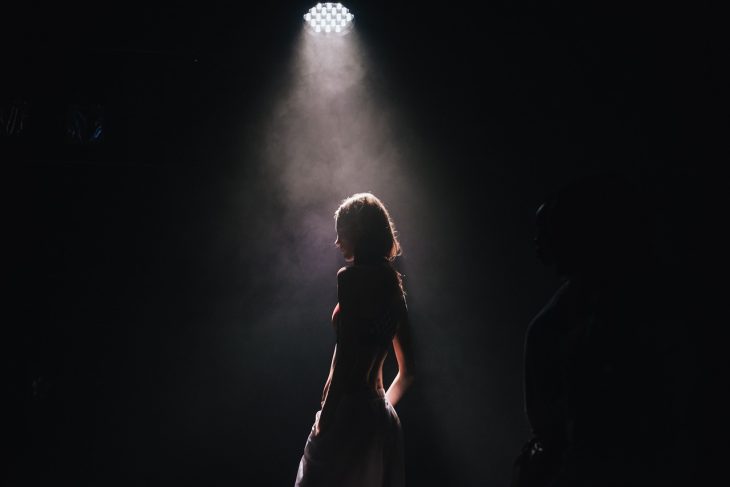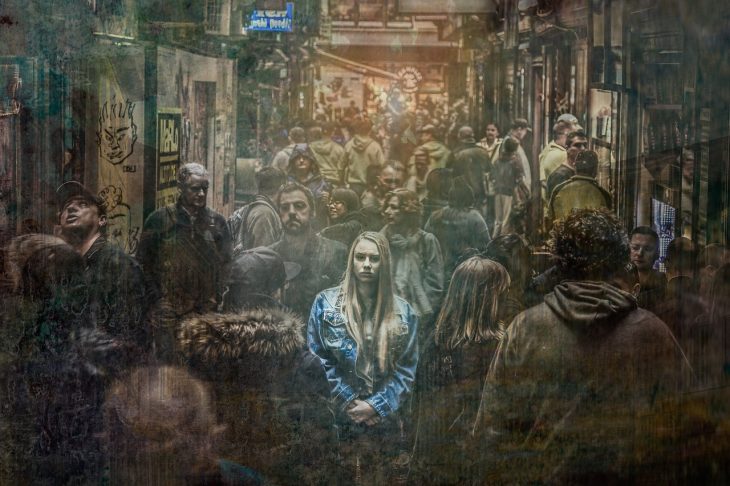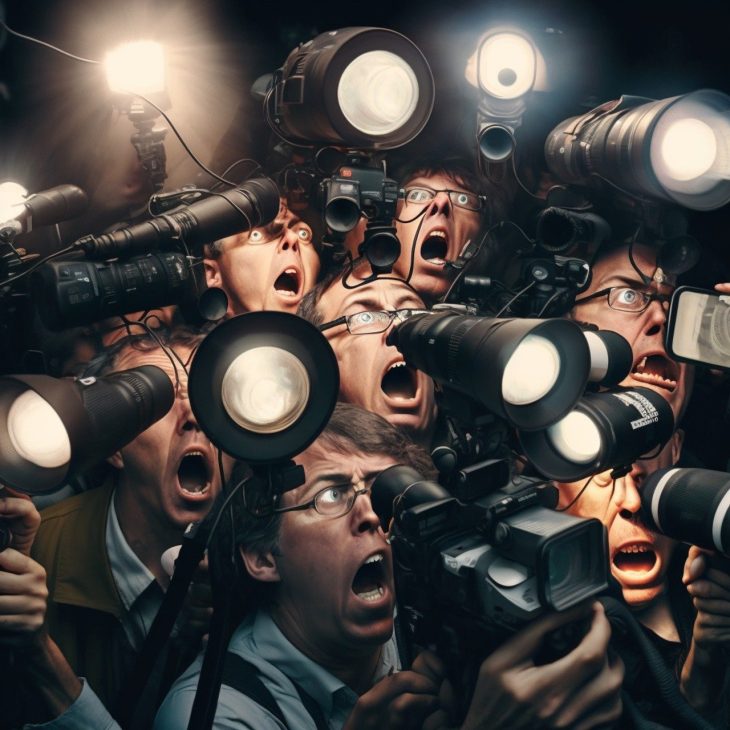Fame – an Introvert’s Dilemma

Image by StockSnap from Pixabay
Good afterevenmorn!
It is a long-held convention, it seems, that writers are, by nature, introverts. From my experience, both quite personally, and with nearly everyone in my immediate professional circle, this seems to be the case. In fact, of the many writers that I know in person, only one of them is not an introvert. She is the only one who is invigorated by crowds. Others you might be excused believing are extroverts, given their bright, effusive natures, but they, too, collapse into a heap following interactions with people.
I am very much one of the latter. Small groups of people are fine, even if exhausting. I cannot handle large groups at all. I get incredibly stressed, often disassociate, and afterward am little more than a shell of a person incapable of even the most basic actions necessary for survival from anywhere between one day to an entire fortnight. It’s like a genuine physical blow.
Why yes, I did recently work a convention. Why do you ask?

Image by Grae Dickason from Pixabay
Which brings me to today’s topic. Fame.
In a recent post that has sparked a great deal of discussion, singer Chappell Roan detailed how she has struggled with her sudden rise to fame, and the manner in which some people feel entitled to her time and person because of that fame. There are “fans” so obsessed with her and her art that they’ve taken to doing all kinds of really horrid things; from finding where her parents live and harassing them, to stalking her sister at her workplace.
Something similar has happened with Hozier, who recently had to write a post asking his “fans” to leave his girlfriend alone. Apparently a few of them first discovered who she is (I’m clearly a fake fan. Didn’t even know he was dating someone), and then plagued her social media. Not cool.
This to say nothing of the things expected of them from “fans.”
I keep using quotations around the word fans because I have some pretty strong thoughts of just how disrespectful and unkind these kinds of behaviors are. And I take umbrage at the argument that simply because they’ve become successful doing what they love, that because a large number of people found and enjoyed their art, they somehow agreed to be treated in this manner. It’s absurd and abhorrent.
I’m not famous, thank heavens. I cannot imagine how it would be to have strangers come up to me all the time and demand a conversation, a photo, a signature, a hug; even when it’s clear that I’m just trying to do my groceries, or hang out with friends, or otherwise just try and live my life.
I have to prepare for dealing with people. It’s not that I don’t enjoy it, but it takes some psyching-up, and afterwards I’m quite done. The idea that someone could blindside me with the idea that they’re entitled to me for whatever reason is horrifying in ways I cannot rightly express.

Image by amirhossein hosseini from Pixabay
But Sonia, I hear literally everyone asking, you’re not famous. No one even knows who you are. And you’re not a content creator, actor or singer either. You’re just a writer. The same weird parasocial relationships are not really a part of your world. Why are you stressing?
First, ouch. Rude. True. But still. Ouch.
Second, yet. You see, I want to be able to make a living from my creative works. Something I’ve lamented that I cannot do more times than I care to count. I’m quite sure you’re sick of it. In order to create the kind of career I want, I do have to make myself publicly available to an extent I was not prepared for when I started this whole writing lark. There is an expectation that I have to be on several social media sites and making content in order to help sell the work. And it’s not an expectation for nothing.
I can’t rely on the books alone. Even the most brilliant writing fades into obscurity if there’s no one there to bring it to light. This isn’t to say my stuff is brilliant, but it’s good enough that my perfectionist butt felt okay sharing it. And in order to help it sell, I really should be doing everything I can to get word about it out.
Unfortunately for folks like me, that involves social media; content creation, interviews, and public events/appearances.
These things are so very taxing, even with preparation. It opens the way for parasocial relationships, something I have danced around the edges of just from having a table at conventions. While I can’t speak for every writer, I really do have to be “on” for them. Which means prep-time and a lot of recovery time for when I finally get to turn off. I can’t imagine having to be on all the time the way these big celebrities must be, just in case someone wants a hug, or a picture.

Image by Pexels from Pixabay
So, people like me find themselves caught. Reach for fame in order to make a living from their work, or don’t, and maybe never have their stuff read save by friends and family. Fame isn’t the goal here. Or not really. Not for us. For our books, absolutely. It is very hard, unless you’re very, very lucky, to separate the two, however.
Needless to say, I fall firmly on Ms. Roan’s side here. And from my observations of what famous people have to endure, I want nothing to do with it. And yet…
So, even though I’m not famous, I really do think the culture needs to change. It’s wonderful if the art, be it a film, a song, an actual art piece, or a book, someone produced touched another deeply. I know how that feels. But that doesn’t mean that people are owed anything from that creator. Not their time, not their conversation, not a photo, not a hug. Nothing.
The gift — their art — has already been given.
Writers do not get the same sort of harassment that other creatives get, thank goodness, but seeing how others get treated has instilled a very healthy fear of fame in me. I don’t want it.
So let’s change the culture, yes? No more normalising or excusing creepy and outlandish behavior. Stalking someone, or their loved ones, is not more acceptable just because that someone happens to be famous. There are times and places where asking for photos, a signature, or a hug, or sitting down and having a conversation with someone is acceptable; where and when they’ve prepared themselves and can cope with it. If you are outside of these places and times, leave people alone.
M’kay? M’kay.
When S.M. Carrière isn’t brutally killing your favorite characters, she spends her time teaching martial arts, live streaming video games, and cuddling her cat. In other words, she spends her time teaching others to kill, streaming her digital kills, and a cuddling furry murderer. Her most recent titles include Daughters of Britain, Skylark and Human. Her serial The New Haven Incident is free and goes up every Friday on her blog.
You describe quite well why I gave up a long time ago of doing this full time. For me, it’s best to be a full time engineer and a part time writer than spend time on marketing and marketing adjacent work. It’s just not for me.
It’s not easy, that’s for sure!
Well, I’m a moderate introvert myself, and my sympathies are with you. On the other hand, I don’t know how to change the culture. I have rather definite ethical and political views that aren’t standard, so this is a topic that interests me, but I don’t see a method that works. Though I do have two ironic thoughts:
On one hand, the people who are most likely to be able to exert social influence and change the culture are probably extraverts.
On another hand, it may be just as well that there isn’t a reliable method that’s assured of changing the culture, because if there were, it would be available to people whose goals neither you nor I might like.
I’m never likely to “enjoy” the public success of Chappell Roan, so I don’t fear for my wife, my kids, my overall privacy. I do remain stunned at how the various wings of our risk-averse publishing industry wants writers to perform for the public, and specifically for the world of social media. When I was a much younger writer and a stay-at-home father, I wrote a book about how I juggled that experience, and I got it to an appropriate publisher, who loved it, but said he wouldn’t publish it because I didn’t have the right platform. He told me what I’d have to do to market the book: start a podcast, travel to all sorts of speaking engagements, attend relevant conferences. I couldn’t do any of those things, certainly not on spec. Nor did I have the time. If I’d committed to those things, I’d have ceased to be both a parent AND a writer, and neither of those outcomes were failures I could stomach. The manuscript, as you can imagine, remains unpublished.
Now, as I veer toward the high end of my fifties, I have a new novel to promote and every expectation that more will follow. I’m no stranger to theater-related conferences, but now it’s time, at last, to dip my toes into “cons”–the kind where F&SF fans and creators cross paths in person. I would prefer not to do this. I would prefer to let my writing speak for itself. I would prefer to stay home, or hike, or visit far-flung family. But, as your write-up ably points out, that’s not enough. I have to present at least a certain amount of myself in public, in person, and then be ready for the sometimes awkward, sometimes enjoyable version of consumption that we’ve come to call networking.
I’ll survive. And I’m not even really complaining. But I know a great many writers who are congenitally shy––who are, as you describe, completely wiped out by confronting large crowds, the work of being social. For them, there really ought to be a different path.
I’d better leave off, before I start either rambling, or grandstanding, or both. Time to run over to Instagram and post something. Homework calls.
I absolutely feel that.
If it helps, the one convention I have attended with any regularity (CanCon) is wonderful fun. It does take so much recovery, though. Conventions have the benefit of being scheduled and therefore can be prepared for (including being able to schedule time for recovery).
There’s none of that when people just run up on someone while they’re just out living their lives.
When I was 13, I spotted Cesar Romero at Kings Island amusement park, in Ohio. No one else had noticed, probably because he wasn’t wearing his Joker makeup. I watched him for a while to be sure, and then, because I was a thirteen-year-old idiot and a boy, I decided to show off to my friends by pointing him out. One of my friends boldly went over to ask for an autograph. Then someone else noticed that somebody famous was signing an autograph. In thirty seconds flat, a crowd had formed. I will never forget the look on Romero’s face. He looked absolutely shattered. And I felt awful. I never punctured a celebrity’s privacy again. I suppose I grew up a bit that day, but it wasn’t worth it, certainly not for Romero.
Oh no! Poor man!
I’m introverted to such a degree that I not only make many people uncomfortable but sometimes even angry solely because I have no use for smalltalk and even less for the kind of mindless blathering most extroverts seem to live on as if it were oxygen. I can be outright charming when I want to and even genuinely enjoy the company of intelligent, well-mannered people for brief amounts of time but that all pretty much went out the window after the COVID lockdown ended and far too many people emerged from it more emotionally needier than ever. I’m always respectful and even a little cordial when dealing with people but the mere fact I prefer to be left alone really rubs a lot of them the wrong way which of course only makes me crave solitude that much more because, my god, people are exhausting.
It’s more than a little ironic that the perennial loneliest job now requires you to brave the social swamps. You have my deepest sympathy. I’ve never felt creators should have to be available to the public and have always most respected those who have deliberately maintained their distance from the public. Sadly that no longer appears to be an option. I wish you all the best. Hang in there and I guess be at least grateful you aren’t an actor or musician.
Oh, am I SO glad that I’m not an actor or musician. I would absolutely lose my mind.
I think Enya had the right idea – success, then vanish into an Irish castle with an army of cats when fame begins to follow! Now if only I could afford and Irish castle…
(Wall o’text. Oops.)
Interestingly, most successful actors are found to be introverts, when people knowledgeable in those things analyze them. I’ve read a theory that what makes them so good at their craft is the discomfort of being exhausted in a group setting leading them to more fully become their characters as a coping mechanism.
Not sure if it would help in a fame-and-convention setting, but as a fellow introvert I’ve found it helpful to treat the theory like fact. When I’m in a hugely social and crowded setting like a convention and it’s driving me down, I think about the sort of person who would willingly be there, and usually it ends up being someone on a mission. Like… well, at the ALA conference, I became the person who was given the mission to pick up the catalogues for or get lists of this year’s and next year’s mystery novels from every book and audiobook publisher on the floor. It didn’t matter that *I* gave myself that mission– I stepped into my role, that’s who I was, and that’s who I projected to everyone I met. It became easier to maintain energy against the crowds as I moved through the hall, because I suddenly had the point-to-point path. It became easier to be happy and energetic toward the people manning the stalls because I had a topic I could immediately narrow down to for them (and picking up galleries and ARCs and other free stuff was simply a side benefit). When I accidentally got redirected to talk to an author, I had a ready-made explanation for what I was doing, so the author completely understood getting a congratulation on the just-published book and then getting asked what’s in the pipeline next. At the end of the day I still had energy because of the armor of dissociation, where everyone who had been crowding or obliging socialization was actually attacking the person with the mission, not me.
Would creating a persona to step into help, when book touring, social mediating, and doing other *fame* things? Separate Sonia and S.M. in a very deliberate fashion, just a little more? A persona is not something that you have to “be on” to do, it’s just something that you “put on” when you need it. Eithne Pádraigín Ní Bhraonáin is not Enya or Clannad, except in a legal and financial sense, so S.M. Carriere can be a mantle you take off at the end of the day.